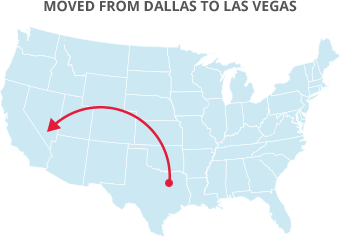

By Julie DeLong, A-1 Freeman Moving Group
 Moving soon? You are not alone--last year over three million Americans moved to a new residence. Some of those moves were across the country and others might have been across the street, but all of those families had to pack all their stuff, load it onto a moving van, and hope for the best. If you're thinking about a move, there's no question you have been trying to find moving companies and have gone down the rabbit hole of horrific move tales on different websites. How do you supervise your residential move so that you are not a victim of moving scammers, and that your possessions arrive at your new residence in Little Rock safe and secure?
Moving soon? You are not alone--last year over three million Americans moved to a new residence. Some of those moves were across the country and others might have been across the street, but all of those families had to pack all their stuff, load it onto a moving van, and hope for the best. If you're thinking about a move, there's no question you have been trying to find moving companies and have gone down the rabbit hole of horrific move tales on different websites. How do you supervise your residential move so that you are not a victim of moving scammers, and that your possessions arrive at your new residence in Little Rock safe and secure?Off the bat, learn the lingo of the transportation industry. It is a ton easier to make good decisions if you understand the language of the business and the diverse business models of moving companies. This glossary of terms, found on the Federal Motor Carrier Safety Administration website, can assist you to familiarize yourself with Mover-talk so that when you hear words like storage-in-transit, tariff and bulky item, you will understand what they mean.
The FMCSA website is a great beginning point in general, as it also outlines the rules of the road, if you will, that motor carriers abide by. Any moving company you are considering should be registered with the US Department of Transportation, and possess a Motor Carrier and DOT number. You can search any complaints against a company from that site. The ones on Yelp and Facebook are more entertaining, but any problems filed with the DOT usually have a higher level of truth than complaints that are most likely the result of the customer just not paying attention.
In an optimal world, you'd find movers a few months beforehand, and unhurriedly pack, supervise the family, and be 100% prepared when the movers show up. Reality isn't so easy, and that's what moving scammers rely on when they're promising you the sun—you're sidetracked and focusing on a hundred things, so they appeal to your sense of urgency—here is a ballpark estimate and a handshake and we'll handle the paperwork later. This is a sure way to never see your stuff again, unless you want to buy it back on Craigslist.
Instead, ask your realtor for a suggestion of a moving company. Or, if you know anyone who's moved recently, ask them if they would recommend their mover. National moving companies commonly have locations all over the country, so you can ask your Uncle in Oklahoma who they used, even if you live in Vermont. Use the FMCSA website to search movers registered for interstate moves, and Google them. Once you've pared down the list to a few options, get written in-home estimates.
Make sure to look at the FMCSA publication, "Your Rights and Responsibilities When You Move". When hiring a professional mover, it is a federal law that you are given this 25-page booklet (or a link to it) that spells out your rights, protection, and industry regulations.
It is important that you spot a dishonest mover BEFORE they have your possessions. Keep in mind, not every mover has your best interest in mind. So, keep these RED FLAGS on hand as you are interviewing your potential mover.
Be wary of movers who:
It's better to be safe than sorry. So, be sure and check out your moving company before they load your stuff onto their moving van! Remember that if it seems too good to be true it probably is, and since you're trusting the moving company with what's effectively your life, do your investigation and select a reputable moving company, like A-1 Freeman Moving Group, who will take good care of you when you move to Little Rock.

